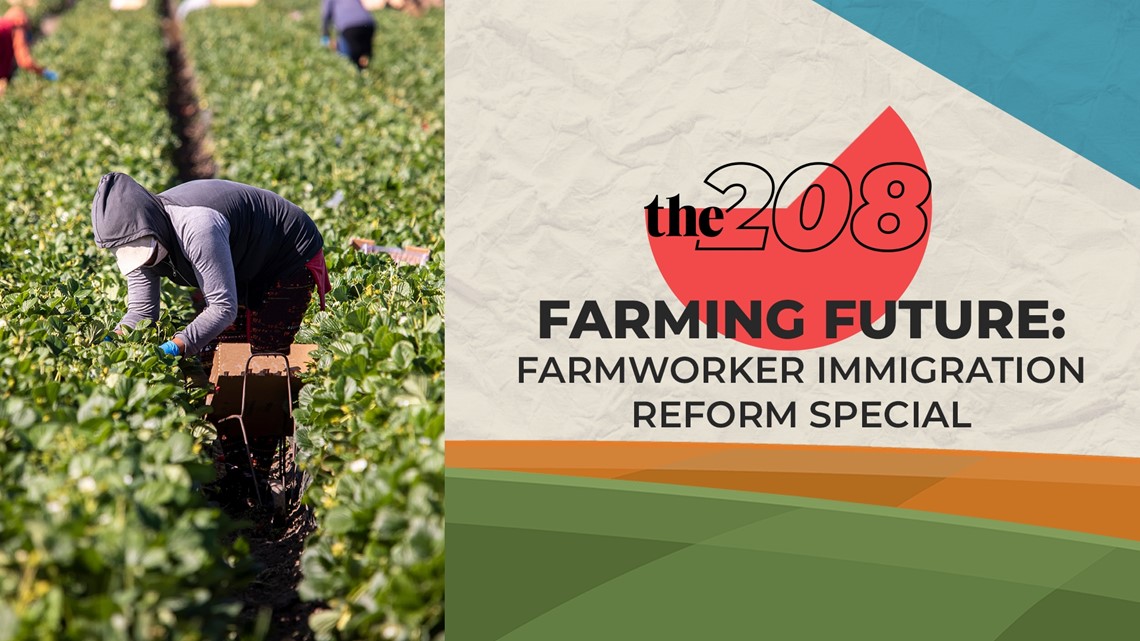Introduction
The reality
The state of Idaho is known across the county for its abundance of potatoes. It is deeply ingrained into the culture, even on New Year’s Eve, instead of dropping a glass ball, Idahoans drop a giant potato. Agriculture runs through Idaho’s veins just like how the Snake River winds its way through the state supplying water to fields spanning for miles.
Agriculture is Idaho’s number one industry and the single largest source of the state’s economy, bringing in roughly 20% of the Gem State’s gross revenue each year, according to the Idaho State Department of Agriculture (ISDA).
Although Idaho is known for potatoes, ISDA reports that the state is also a top-ten producer of wheat in the country. Additionally, Idaho ranks second in sugar beet production and third in dairy, with an annual production of 13 billion pounds of milk.
Dairy farms are abundant in the state and Idahoans may joke about the smell when they drive by one of the facilities. However, have you ever taken the time to tour one of the facilities? Who runs and helps maintain those vast oceans of black and white bovines?
Whether family-owned or not, a majority of employed individuals are from across the southern border.
Back in July, days after the end of another “National Dairy Month”, Idaho Congressman Mike Simpson tweeted about his role in the reintroduction of the Farm Workforce Modernization Act, and said labor shortages in the AG industry create burdens for our farmers and our food supply.
“There is perhaps no more important facet of immigration reform for Idaho and its economy than providing a stable a secure ag workforce,” Simpson said.
Congressman Simpson called out anyone who doubts its importance by stating, ask a farmer and rancher and you’ll learn labor is often their number one concern.
As KTVB last reported The Farm Workforce Modernization Act was first introduced back in 2019 and again in 2021.
Both times they didn’t go anywhere.
The farm bill includes the H-2A program, which helps employers bring in foreign workers when they can’t find enough workers locally. This program is good for Idaho farmers who grow seasonal produce because they need workers only during the harvest season. However, dairy farmers need workers year-round and require a visa program that will allow them to employ foreign workers throughout the year.
Policy reform
Push for change
A subtle breeze blows over a scenic Idaho prairie gently rustling a sea of maize(corn). The land is owned by an Idaho farmer who prides himself on his work.

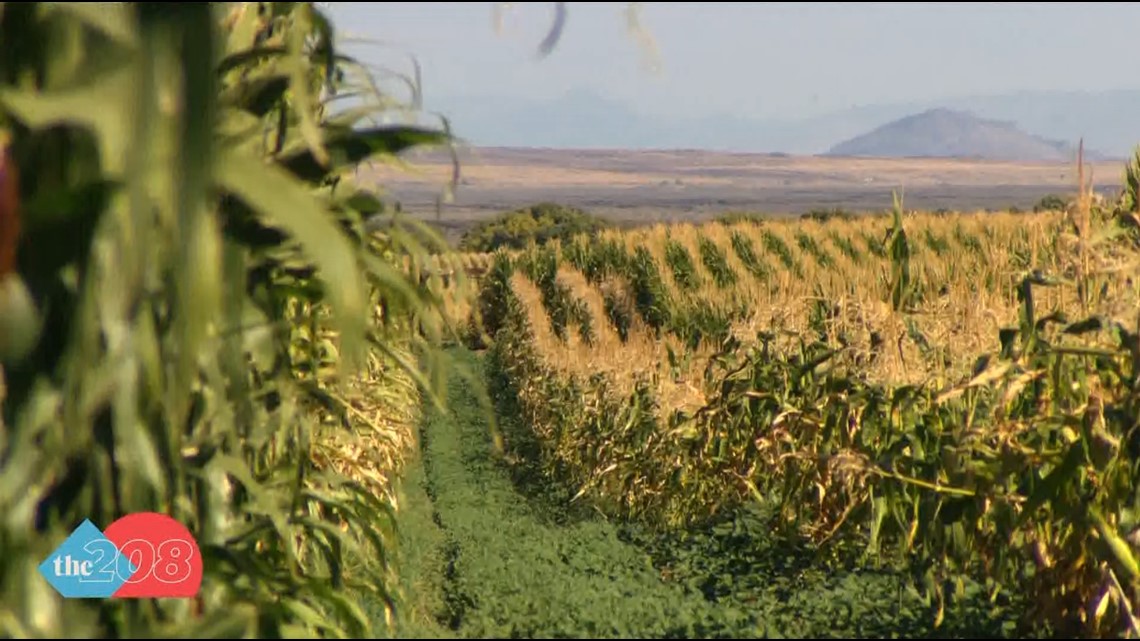
“I can’t imagine raising my kids any other way than what I’ve done,” said a farm owner.
This is a homegrown nod toward the template of self-sustaining. The dairy is an independent and year-round operation.
“When you have a connection to the land, or you have a connection with livestock, I mean, it is it’s more than a job,” the owner said. “It’s a life.”
Which the Idaho farmer has fueled for three generations.
“There isn’t a single job that I wouldn’t ask any of the guys to do that I or my dad or my son wouldn’t do in their stead,” he said.
He continued, “I’ve used the same employees, the same family, the core of my group of employees have had with me for over 20 years.”
To protect the farmer’s employees from any possible repercussions, KTVB chose to keep the conversation anonymous.
“In the 20-plus years, we have used the H-2A program, I have had one American applicant that has come to me for a job,” he said. “And once they got to the farm, they worked one day and never showed up again.”

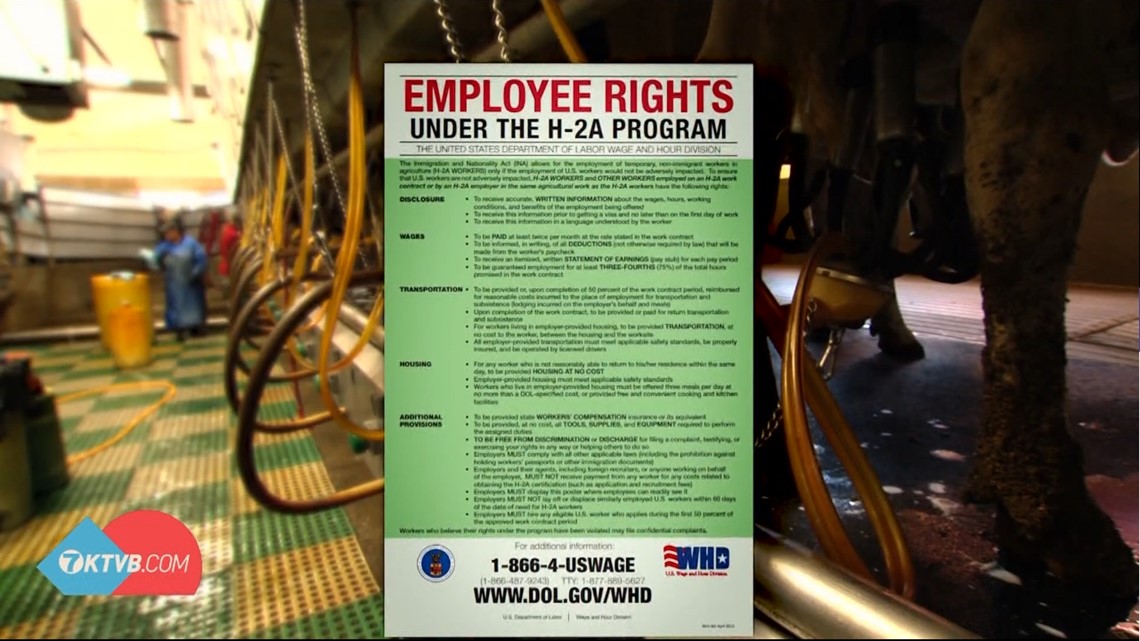
The H-2A program was created by Congress in 1986 as part of the Immigration Reform and Control Act. It’s a seasonal work visa program that helps farmers fill unoccupied agriculture jobs. However, it being seasonal poses a problem for year-round farming operations.
“You need year-round employees; you can’t have your guys going home the 15th of November and then aren’t able to come back up until February or March,” the owner said. “What do you do in the interim four months, five months? It’s untenable that way.”
According to Information from the US Citizenship and Immigration Services (USCIS), the typical stay for the H-2A is granted for the type of work, which in most cases is only for the harvest season.


“We all recognize the system is broken, and we need to fix it,” said Idaho Congressman Mike Simpson.
Simpson said the work of a dairyman, cattle or rancher is not seasonal because those cows need to be milked year-round.
“I heard the other night, 6000 openings in the dairy industry,” Simpson said. “They had three applicants that were Americans for those 6000 jobs. I mean, it’s a huge issue.”
But it draws little interest in a solution. However, the Idaho Dairyman’s Association(IDA) has nothing to hide.

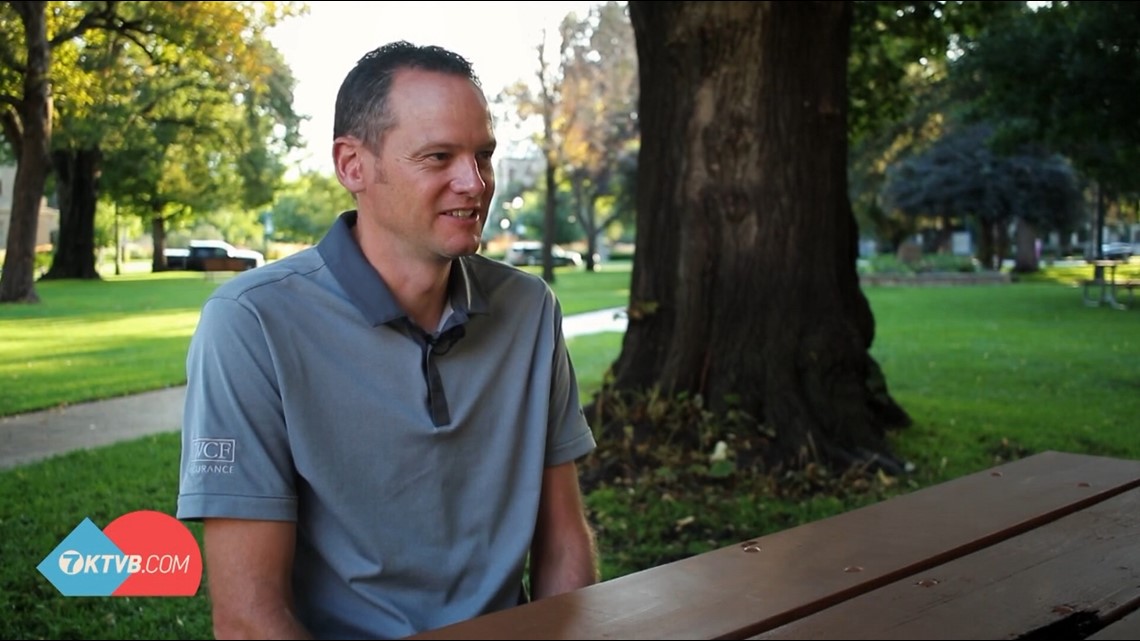
“90 percent of our workforce is foreign-born,” said Rick Naerebout CEO of the IDA. “And we’re sitting without a visa program. So that’s going to tell you a lot about the legal status of our average dairy.
Naerebout said that’s the reality they have been working through for the past 30 years.
With the program being passed in 1986, it has remained untouched by Congress for decades. But it’s not for a lack of trying.
“We almost had it done on the omnibus last year, but we just couldn’t get across the finish line,” Simpson said. “So, we’re trying again this year.”
Simpson’s proposed legislation is called the Farm Workforce Modernization Act. The bipartisan bill aims to provide documentation for the undocumented agriculture workers already in the states. It will provide year-round visas for future H-2A agricultural workers, and those who choose, a pathway for citizenship.
Simpson said it would probably take 18 years before anybody would become a citizen but citizenship is not the biggest thing on those farmworkers minds.
“They just want to work,” he said. “and they’re working in jobs that Americans won’t fill.”
Simpson agreed that there has been pushback from people wanting them in the country, but he’s coming from the standpoint that it’s an important backbone of Idaho’s workforce. He said to those who want to deport them because they came here illegally.
“How much are you willing to pay for milk? How much are you willing to pay for any other commodity? I’m talking huge increases in the cost,” he said.
But the barriers barring this bill are built at the border. Bad actors like traffickers and cartels are all contributing to the connotation of immigration.


“Until you can control that border, you’re going to have a tough time passing anything that has the word immigration attached to it, Simpson said. “And that’s unfortunate. That’s the political environment that we’re in”
Simpson’s bill passed the House twice, but the Senate has not even voted on Simpson’s bill.
KTVB asked Naerebout if Idaho’s dairy industry could exist without undocumented workers.
“No. The current state of play without access to a visa program, we would not be able to milk cows and do the day-to-day business of dairy without the Hispanic workforce that’s here today,” he said.
The very workforce Idaho’s economy depends on every single day. The same workforce the U.S. immigration system refuses to accept.
“As far as I understand, every one of my workers is legal to be here,” the farmer said. “we collect taxes on everybody that works for us, those taxes are paid to the government. And if there’s something wrong with paperwork that’s on the government side for them to figure it out.”
It becomes a situation of don’t ask, don’t tell. Not becoming a problem unless you make it one.
The farmer said his workers don’t cause any trouble because they come to work and they like to go fish. But then a problem arises once they are required to “Touch Back,” meaning they must return to their country when their temporary visa expires, and then cannot return for at least three months.
“They ask me, ‘Hey can you bring me up through the H-2A and I’m like, I’m sorry, I cannot,” he said.
A skilled worker taken from a local family business for just wanting to see their own family back home.
“Politics aside, I’m tired of hearing the rhetoric,” he said.
The ongoing reality for 30 years in the same place where the wind blows.

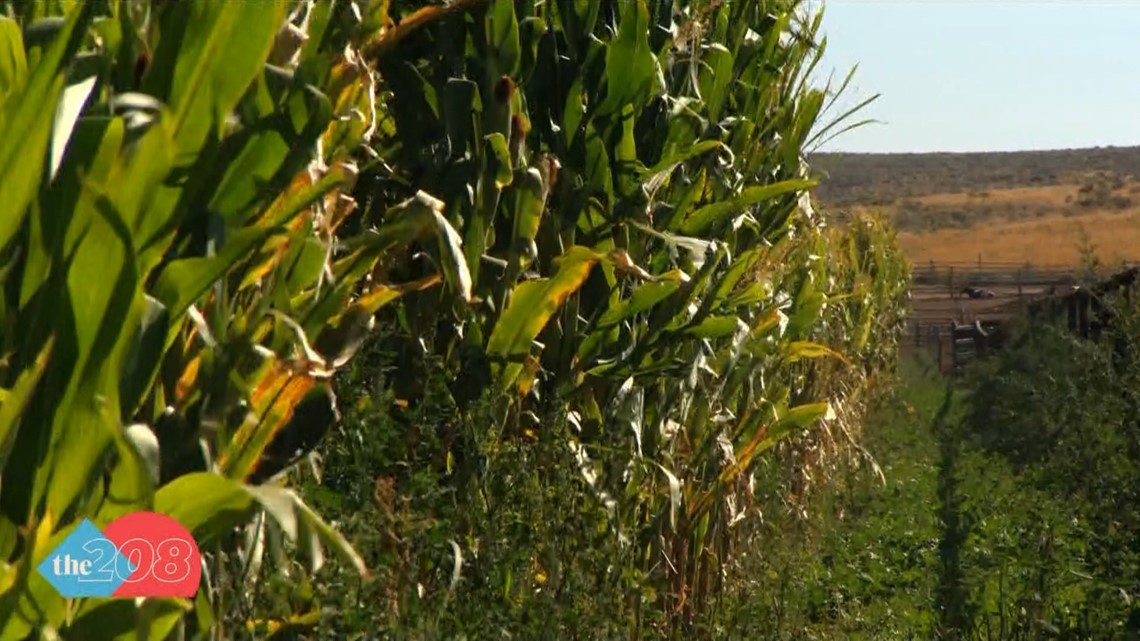
The owner said that both sides of politics blame each other.
“That’s the biggest problem with politics across the board, he said. “There is no common ground. Nobody wants to work together.”
Expanding the H-2A program to a year-round system is the first and foremost goal for IDA. The program will require owners to provide free housing for their workers here on a visa.
The legislation also aims to implement “E-Verify”, which is an electronic program to replace current paperwork to verify a worker’s legal status. The owner said this would save time.
The question comes up, “Why don’t Americans work these jobs?”
The dairy owner KTVB spoke to said his entry wage is $3,300 a month, but they are required to work 60 hours a week.
Opposition
Pushback to immigration reform
Immigration reform in the United States has two sides. Those who want immigration policies to be passed, and those who want to toss those policies out with the people who can benefit.
Opposition isn’t exclusive to other states. It happens locally and the local opposition to immigration reform is likely represented by the views expressed by State Senator Brain Lenney from Nampa.
On Oct. 5, Senator Lenney tweeted this X (formally known as Twitter)
KTVB’s Brian Holmes reached out to Senator Lenney. He declined an on-camera interview but did respond to emails.
Following the 208’s broadcast, Senator Lenney responded.
Senator Lenny claims most people who come over the H2A overstay their temporary visa and said “That’s a fact.”
According to research from the CATO Institute, “To receive visas, H-2A workers must demonstrate that they do not intend to live in the United States permanently, either illegally or legally. Based on the available evidence, less than 1 percent of the illegal immigrants who overstayed visas were H-2A workers, indicating that they value their legal status.”
Farmworkers story
Farmworkers’ Story
What farmworkers have to endure
It’s harvest season in Idaho, which means crops like sugar beets, potatoes and onions are being pulled out of the ground. And the days become shorter and night approaches fast. But for those who work in the field, the job remains just as long.
KTVB conducted the interviews in Spanish and the following quotes will be transcribed into English.
“It’s really tiring,” Mary said.
This work isn’t your typical eight-hour shift. Whereas some days the farm workers said a typical day for them lasts 12 to 16 hours, and they get little time for rest.
“They say okay take 15 minutes,” Anna said. ” That’s what they give us”
It’s a job only a few can take on.

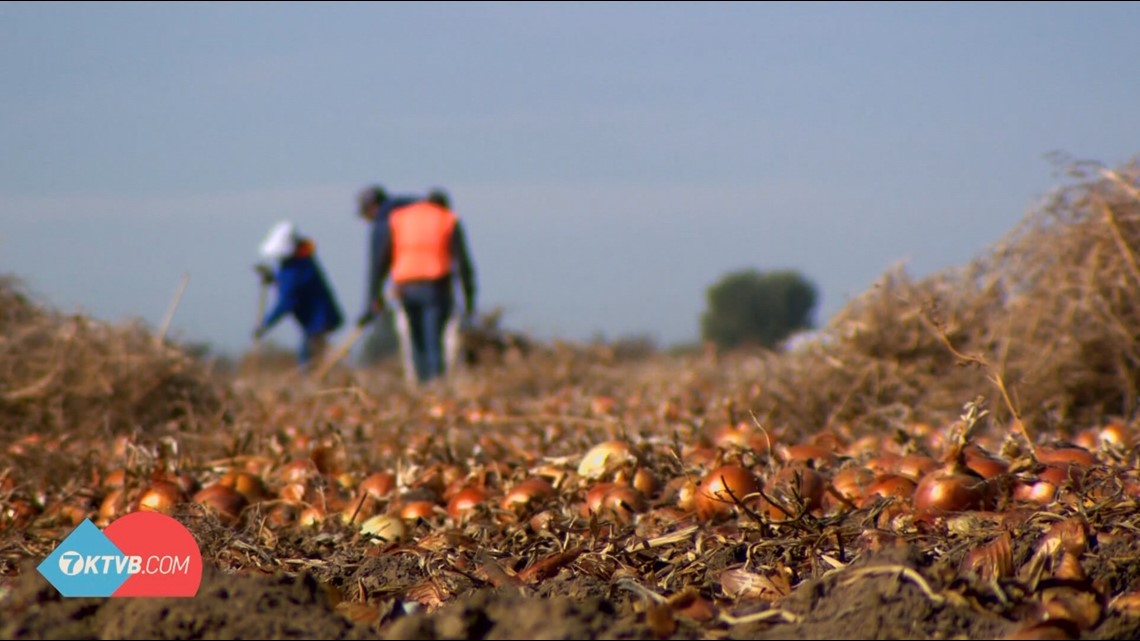
“You are soaked in sweat, the dust bothers you and some people get bad allergies,” Mary said. “You might slip and fall but we still need to work”
Mary is from Mexico but she has been working in Idaho for more than 15 years. Almost as long as Anna, who it’s been two decades since she left Mexico to work the fields in Idaho.
“I work in the early phase of the potatoes,” Anna said. “It’s at night. I clean them, pick up the garbage, bottles, rotten potatoes and all that.”
Manual labor isn’t the only working condition consideration. (Insert statistic)
“Every year, they are coming out with new chemicals,” Anna said.
The Idaho Immigrant Resource Alliance(IIRA) said being exposed to pesticides is “a health risk.”

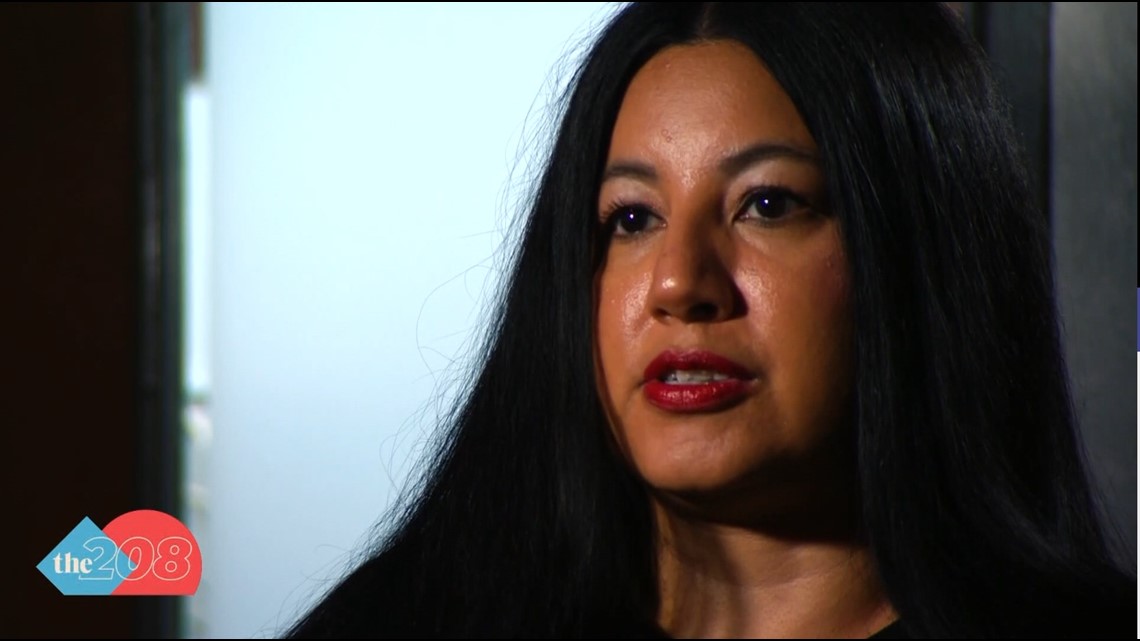
“There’s a lot of conditions, which makes sense why there’s some people who don’t want to do that work,” said Irene Ruiz, director of the IIRA.
“Some people” might mean those who live here legally. KTVB asked Anna if there were any Americans working in the same position she was.
“No, the majority are Mexicans,” she said.
For many of the farmworkers, it’s the only way to make a living in America due to their immigration status.
“It’s the only thing we’re able to work in,” Mary said. ” Because if you go to a different company, you have to be legal to work there.”
The farmworkers said that being in their position bleeds into the social aspect.
“I feel like sometimes Americans hate us for being here,” Anna said. “But we are the ones feeding them, and many of them don’t like us.”
However, not every farmworker who works in Idaho fields is undocumented. Some come from other countries under the H2A Temporary Agricultural Program, which helps farmers bring foreign workers to the U.S. to perform temporary or seasonal agricultural work.
“It gives me joy that they come,” Mary said. “Because my dad always said ‘the sun shines for everyone.'”
However domestic farmworkers feel like farmers are starting to favor those in the program and pushing domestic workers to the side.
“We have helped out so much and we’ve been here,” Anna said. “They come and go, but they still prefer them.”

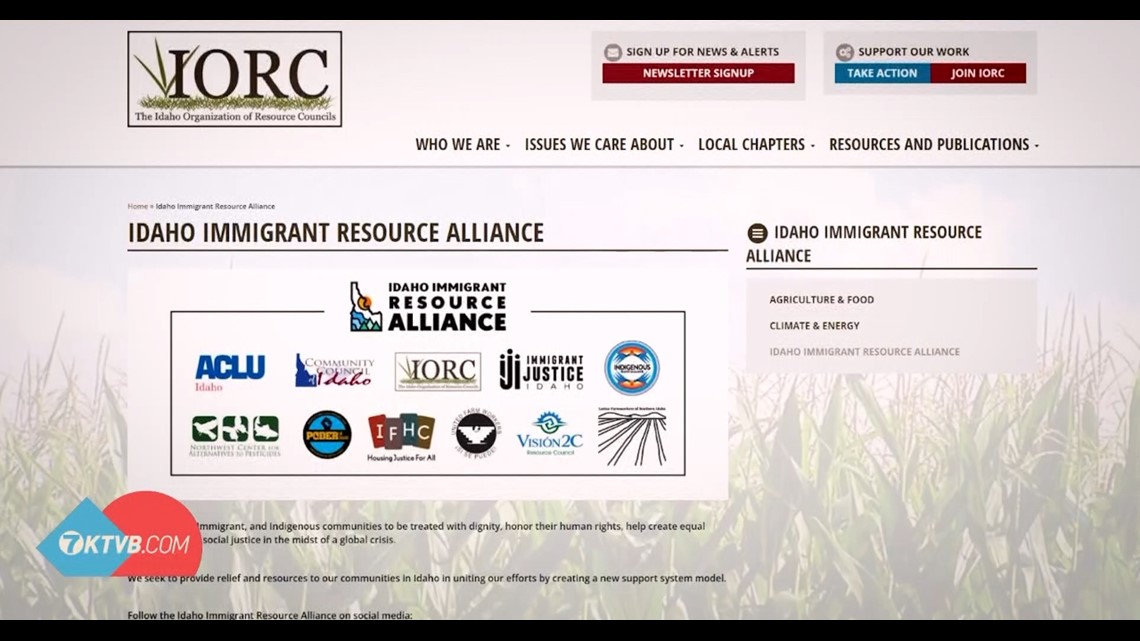
The IIRA and its sub-organization Visión 2C Resource Council are taking notice.
“A lot of times farmers see them as commodities and not human beings,” said Ruiz. “So they’re seeing the price tag, instead of the actual human being that works behind that labor.”
Ruiz said the goal is to help recognize the work that domestic workers do and to make sure they are not forgotten. Because they are helping add fuel to the US economy compared to those who come over the H2A program, which return home after their stay is complete.
The IIRA and Visión 2C said they are working year-round to help advocate for the working conditions of farmworkers.
“I think it’s crucial that we try to support farm workers and what we can to help alleviate some of those things that affect them,” Ruiz said.
They are also trying to change the policy that Ruiz said: “Isn’t working.” She continued and said they don’t have rules or regulations, but they receive recommendations from OSHA.
To help bring forward change Visión 2C created a new story collection project, which aims to gather farmworkers’ stories so they can express themselves and the concerns they have.
“My end goal is to get policy going to protect farmworkers from heat, extreme heat and smoke inhalation and pesticide poisoning…” Ruiz said. “There needs to be a path to citizenship for our domestic workers, I feel like they deserve to be able to work in Idaho without living in fear if they’re going to be deported.”
The IIRA said providing legal status with a path to citizenship can help farmworkers improve wages and prevent the exploitation of undocumented workers and H2A workers.

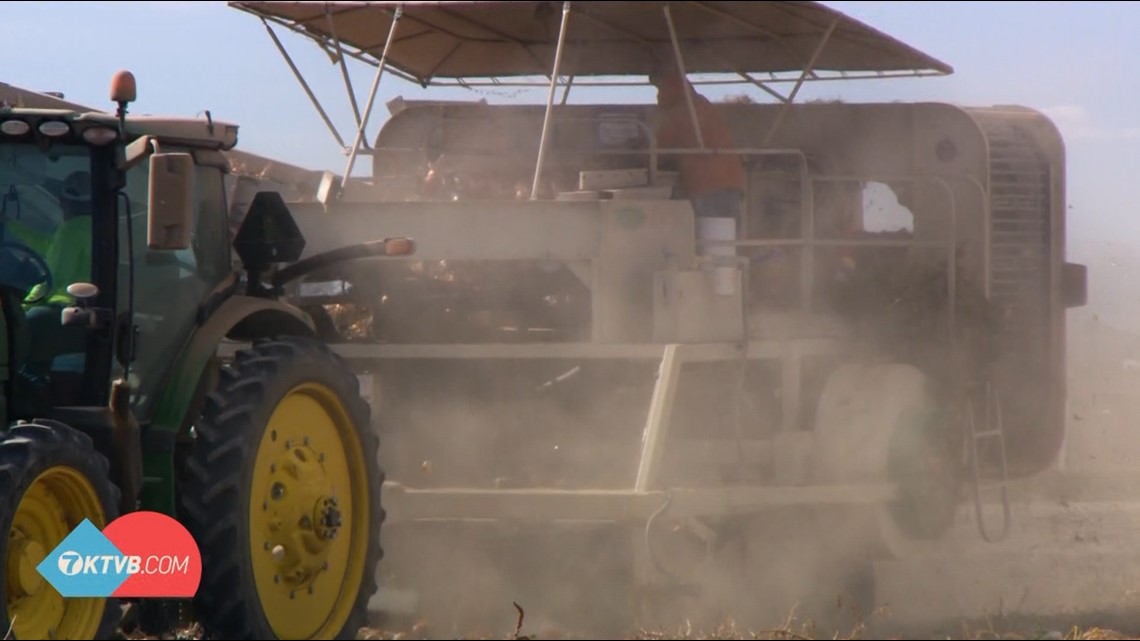
Mary said farmworkers are simply asking, “If they saw us more like humans it would be better. If we had some kind of rights.”
They expressed that at the end of the day, they are working to provide a better future for their families, which is all many farmworkers want. Also, without the fear of being taken away from their loved ones.
“If there was a law that would help people who are here illegally, it would be the best thing in the world,” said Mary.
Until that time comes, they’ll go on working, finishing the harvest.
“We are important,” Mary said. “We are here to help put food on the table for the whole world.”
Resources
What Idaho Organizations are doing to help?
Farmworkers have to endure harsh working conditions, such as pesticide exposure, working in excessive temperatures and access to clean drinking water. Farmworkers want to provide for their families and the fear of being taken away from them is very real.
The IIRA works with many organizations including the Community Council of Idaho to provide other resources for farm workers. They offer assistance to help navigate affordable housing and affordable health care through a community family clinic. Also, help find migrant and seasonal headstart programs for children from up to five years old to learn English and Spanish.
They also help provide immigration legal services through Familias Unidas, which helps farmworkers who want to become citizens renew their DACA at a low cost.
This past summer, IIRA provided supplies to farmworkers to protect them from the elements which were: Water, Gatorade and electrolyte packs, sunscreen, bandanas, gloves and safety glasses.
“I think it’s important that we are out there advocating with farm workers on meeting these kinds of needs, even though it might for a lot of people might not be important to them, but for farm workers is super important,” said Ruiz.
See the latest news from around the Treasure Valley and the Gem State in our YouTube playlist:
HERE ARE MORE WAYS TO GET NEWS FROM KTVB:
Download the KTVB News Mobile App
Apple iOS: Click here to download
Google Play: Click here to download
Watch news reports for FREE on YouTube: KTVB YouTube channel
Stream Live for FREE on ROKU: Add the channel from the ROKU store or by searching ‘KTVB’.
Stream Live for FREE on FIRE TV: Search ‘KTVB’ and click ‘Get’ to download.

